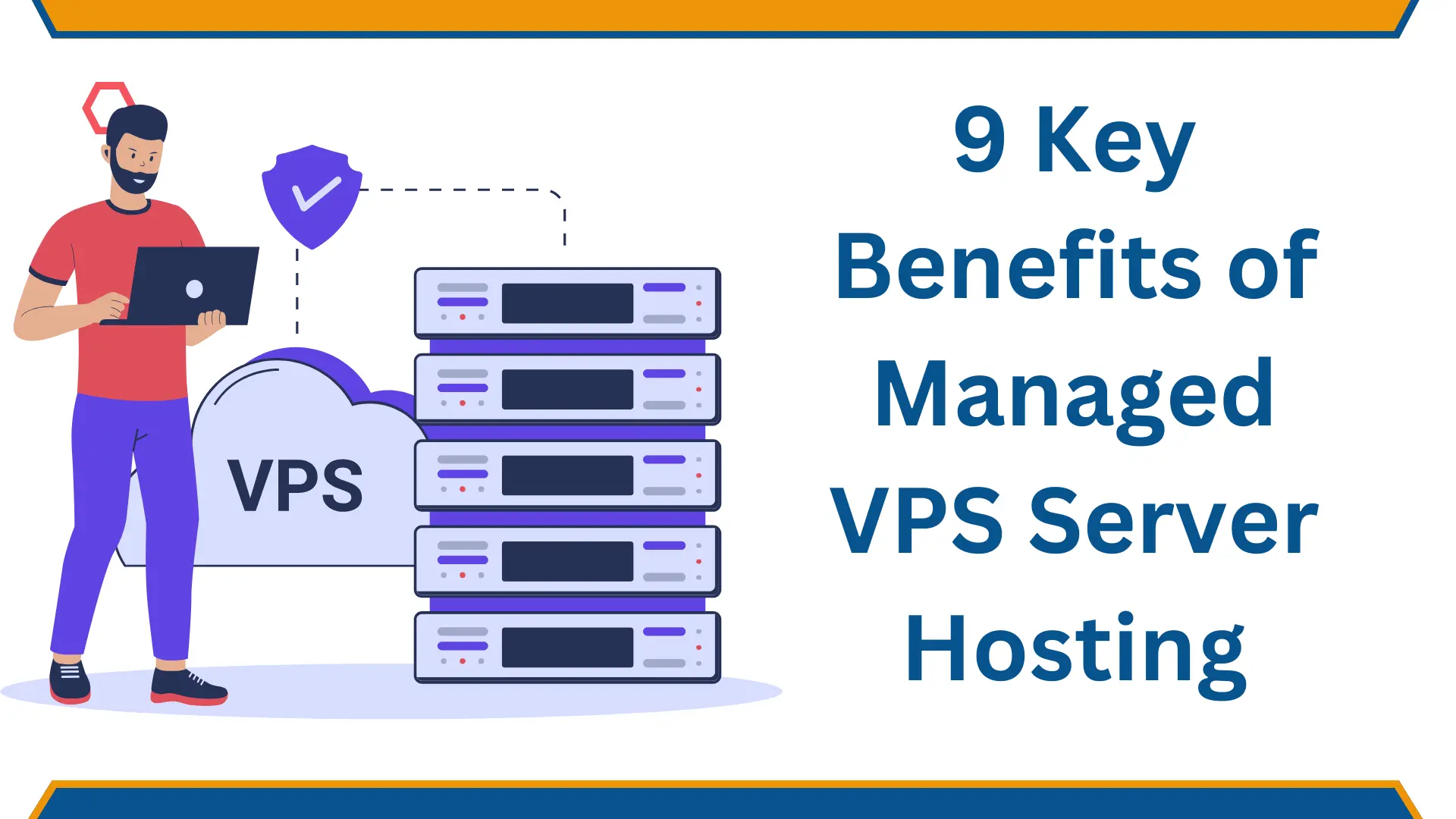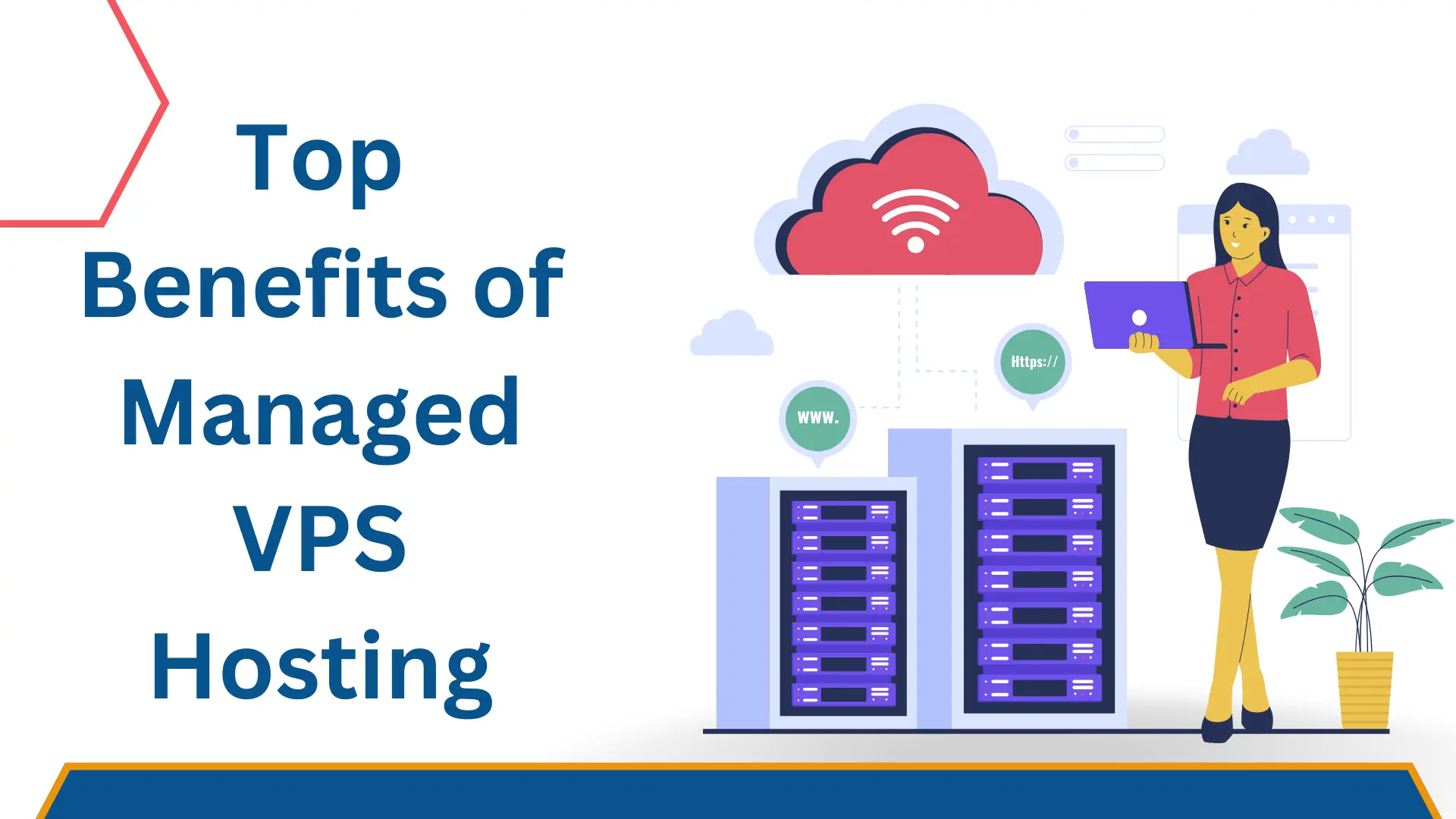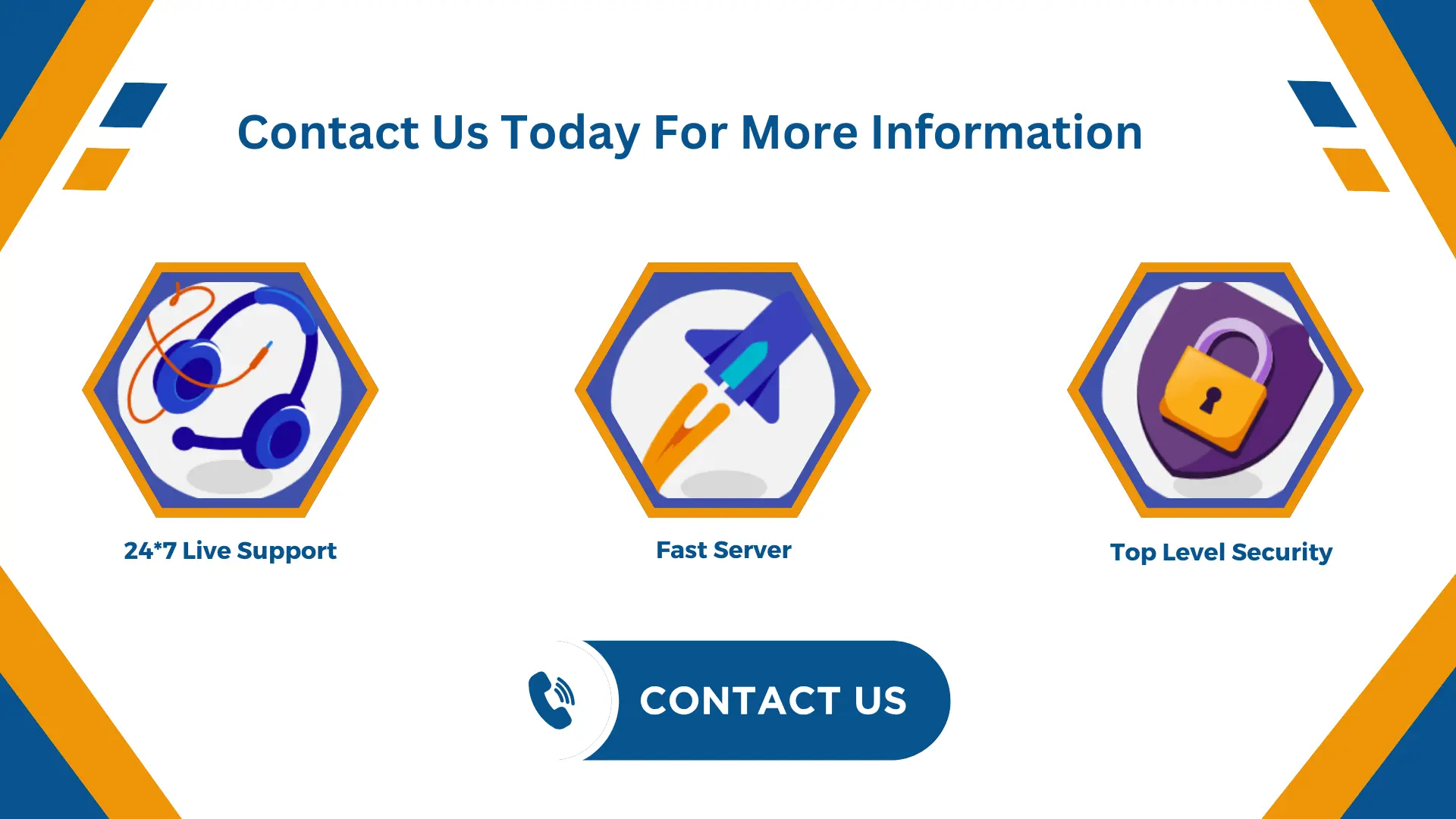
In today’s digital era, a robust online presence is needed for any successful business. Every sector, irrespective of its nature, relies on a seamless website to stay ahead in the competitive landscape. The foundation of such a website? A dependable hosting solution.
While traditional hosting methods demand a significant amount of hands-on management, managed VPS hosting emerges as the hero.
With managed VPS, not only do you get a dedicated virtual space, but you also benefit from expert hands taking care of the technicalities.
This means fewer worries about updates, security patches, and daily operations. As your website scales and demands more resources, understanding the advantages of managed VPS hosting becomes crucial.
But before getting into the benefits of managed VPS hosting, let’s understand what VPS is.
What is managed VPS hosting?
VPS is a unique solution that offers users a virtualized server environment, accessible via the cloud or a hosting provider. This virtual server acts as a dedicated space, ensuring that the actions of others don’t affect its performance, and providing a level of isolation and security that shared hosting can’t match.
However, the difficulties of managing a VPS can be difficult, especially for those who aren’t techy. From understanding the operating system to handling software installations and security patches, the responsibilities can be overwhelming. This is where managed VPS hosting stands out. It’s a service made for those who want the power and flexibility of a VPS without the associated technical challenges. Opting for managed VPS hosting means entrusting the nitty-gritty of server management to experts. Your hosting provider not only sets up and configures the virtual machine for immediate use but also oversees its ongoing maintenance.
This includes tasks like software updates, security measures, and performance optimization. As a result, business owners can redirect their focus from server management to growing their enterprise, ensuring that the backend is in capable hands.
However, it’s essential to understand its various facets, including the benefits, potential drawbacks, and the distinction between managed and unmanaged VPS solutions. This knowledge will empower you to make an informed decision as per the needs of your business.
Top Benefits of Managed VPS Hosting

As previously highlighted, one of the perks of opting for managed VPS hosting is the freedom from the intricate server management tasks that come with unmanaged VPS solutions. This means less time spent surfing through the internet, sifting through guides, navigating complex menus, and inputting commands—a clear advantage.
But beyond this convenience, what other benefits can you expect that will positively impact your website’s performance and enhance your overall hosting experience?
Below are a few benefits of managed VPS hosting that you can’t ignore.
1. Faster Performance
The speed of a website is significantly influenced by the available CPU cores, RAM, and storage capacity. A well-quality server naturally translates to quicker website loading times.
However, it’s not just about the raw hardware; the main advantage lies in the optimization. With managed VPS hosting, there’s an added benefit: experts who know the ins and outs of server configurations.
These specialists have the know-how to fine-tune system settings and employ tools that maximize the server’s potential. So, not only do you benefit from superior hardware, but you also get a server that’s optimized for peak performance, ensuring your website operates at its best.
2. Scalability
In a VPS setup, specific portions of a physical server’s hardware resources are given to a virtual machine, ensuring they’re solely dedicated to that particular machine.
This not only guarantees consistent performance but also offers the flexibility to scale. Whether it’s storage, RAM, or CPU cores, adjustments can be made seamlessly to cater to growing demands. As an advantage, these upgrades often don’t need a reboot of the virtual machine, you can upgrade as many times as you want.
One more feature of managed VPS hosting is the inclusion of load monitoring tools. These tools provide real-time insights into the server resources you’re utilizing.
Having this data, you can forecast when you might hit the server’s limits and make timely upgrades. Thus, scalability becomes a proactive endeavor, ensuring your website’s performance remains unhindered.
3. Dedicated Resources
In shared hosting, a single server’s hardware resources are distributed among numerous accounts. This means that a spike in traffic to one website can potentially strain the server’s capabilities, inadvertently affecting all other websites hosted on the same platform. It’s a domino effect that can compromise performance and reliability.
In VPS, users are provided with dedicated hardware resources, exclusively reserved for their server. This ensures that the resources are consistently available, irrespective of the demands of other virtual servers. The outcome? A hosting service that’s not only faster but also gives a higher degree of reliability.
4. Customer Support
When you choose a self-managed server, you’re mostly on your own. The hosting company might help with hardware or network problems, but they won’t assist with software or setup issues. This means you have the freedom to set things up how you want, but if something goes wrong, it’s up to you to fix it.
On the other hand, with managed VPS hosting, you get a server that’s already set up for good performance. You don’t have to deal with the technical setup yourself.
Plus, if you have questions or need help, the hosting company’s support team is there to help. They’re available to answer questions, guide you, and provide the resources you need. This kind of support is a big reason why many people choose managed VPS.
5. Security
With shared hosting, there’s a risk that problems from one account can affect others on the same server. Managed VPS hosting avoids this by giving each website its own separate space.
This means your website is safer from issues that might affect others. Plus, when you choose managed VPS, the hosting provider makes sure the server is set up with good security from the start.
They use tools to check for and fix security problems. They also regularly look for malware and other threats to keep your website safe. This is important because online threats are always changing and growing. If you were managing the server yourself, you’d have to handle all the security updates and checks on your own.
6. Backup
When your website faces issues, having a backup can help you get back online quickly. If you’re using a self-managed server, you have to set up and handle backups yourself.
This means deciding how often to save backups and figuring out where to store them. On the other hand, with managed VPS hosting, backups are usually taken care of for you. The hosting provider often sets up regular backups that are saved automatically.
These backups are typically stored on a different server, so you can get to them easily if needed. If you ever have problems or questions about backups, the hosting provider’s support team is there to help.
7. SSL Certification
Having an SSL certificate for your website is important today. Without it, many browsers will show your site as “Not Secure”, and it can also affect how search engines rank your site.
In the past, getting an SSL certificate could be costly. But now, thanks to organizations like Let’s Encrypt, which was started by groups including the University of Michigan and the Electronic Frontier Foundation, you can get an SSL certificate for free.
If you’re using a self-managed VPS, setting up an SSL certificate might be tricky if you’re not familiar with the process. But with managed VPS hosting, it’s easier. Many managed VPS providers include tools that make setting up an SSL certificate, like those from Let’s Encrypt, straightforward.
8. Cost – Effective
While managed VPS plans might seem more expensive than self-managed ones at first, they can save you money in the long run. With managed VPS, you get many tools and services that help your server work well.
If you were to add these tools to a self-managed plan, like cPanel or other premium apps, the cost might end up being close to a managed plan. Plus, with managed VPS, you don’t have to spend time or effort on server tasks.
On the other hand, even though unmanaged hosting might look cheaper at first, it can have extra costs that aren’t obvious right away.
And if you think about the cost of hiring experts to help with server tasks, managed VPS can be a more affordable choice over time.
9. Enhanced Server Monitoring
One of the main advantages of managed VPS hosting is regular server monitoring. This means the hosting provider checks your server often to find and fix any issues before they become big problems.
They keep an eye on things like the server hardware, how much of the CPU is being used, the operating system, the apps running on it, and how much network traffic, memory, and storage are being used. This helps make sure your server works well all the time.
With unmanaged VPS hosting, you have to do all this monitoring yourself. This might mean you need to hire more people, which can increase your costs.
Conclusion
Managed VPS hosting offers a balance between shared hosting and dedicated servers in terms of performance, cost, and ease of use. With dedicated resources and an IP, it provides a faster and more reliable service.
The best part is, that you don’t need technical skills because the hosting provider handles most server tasks. This makes managed VPS a good value for your money.
While shared hosting might work for smaller websites with less traffic, for most businesses, VPS hosting offers better performance and flexibility. It’s a solid choice for anyone looking to upgrade their hosting solution.
 Register
Register

